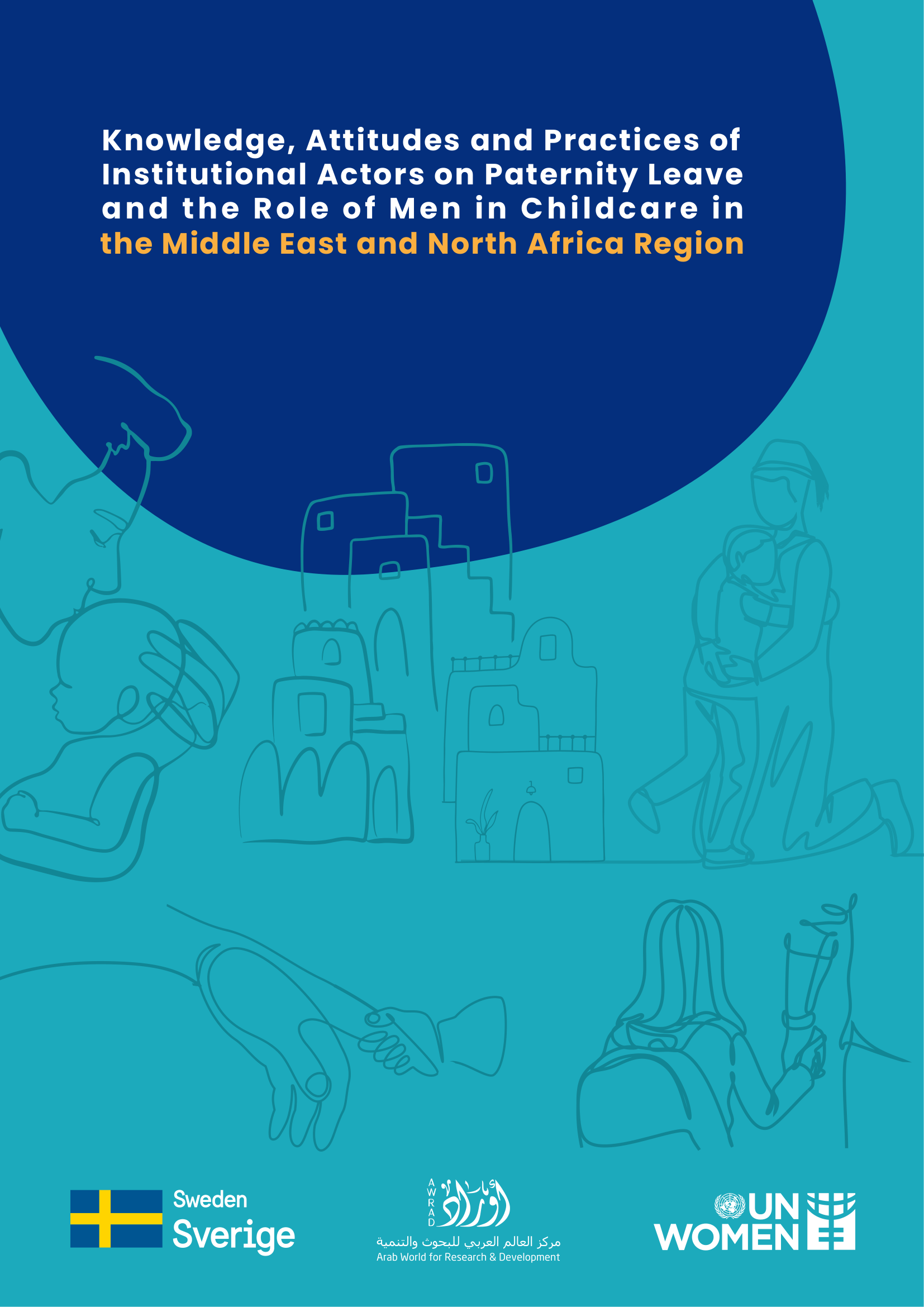
Knowledge, Attitudes and Practices of Institutional Actors on Paternity Leave and the Role of Men in Childcare in the Middle East and North Africa Region

The present research is guided by the goals of informing legal and policy reforms that will increase men’s contribution in unpaid childcare, promote paternity leave, and address the evidence gap on this topic in the MENA region. As such, it focuses on the knowledge, perceptions, attitudes, and practices of state and non-state actors surrounding men’s childcare roles and the issue of paternity leave. It covers five of the six countries included in the second phase of The Men and Women for Gender Equality programme of UN Women’s Regional Office for the Arab States, funded by the Swedish International Development Cooperation Agency (SIDA). These five are: Morocco, Tunisia, Lebanon, Jordan, and Palestine.
The research also aims to inform advocacy interventions, policy, and programming to promote men’s childcare roles and paternity leave across the MENA region. It builds upon the work undertaken by the United Nations Entity for Gender Equality and the Empowerment of Women’s (UN Women) regional programme “Men and Women for Gender Equality” and complements evidence generated by the International Labour Organization (ILO) - UN Women joint regional programme “Promoting Productive Employment and Decent Work for Women”.
Particularly, this research seeks to provide an overview of the global and regional trends and best practices in relation to men’s childcare and paternity leave. In addition, the research identifies entry points and recommendations for future action and advocacy to promote paternity leave across the MENA region, as well as in each participating country, based on the findings of the research.